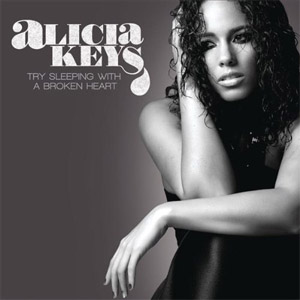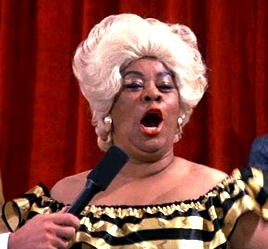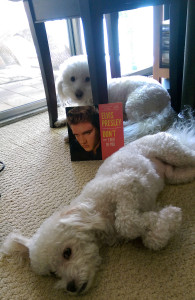Today – thirty songs from the rock era with the word “boogie” in their title.
Follow Tunes Du Jour on Facebook
Follow me on Bluesky
Follow me on Instagram
The year 1957 stands as a pivotal moment in the evolution of popular music, where rock ‘n’ roll, rhythm and blues, and even a touch of jazz converged to create a soundtrack that would resonate for decades. The hits of the year showcase not only the diverse range of genres but also the rise of some of the most influential voices in music history. A prime example is The Crickets’ “That’ll Be the Day,” a track that embodies the early rock ‘n’ roll spirit, blending Buddy Holly’s unmistakable vocal delivery with a catchy, driving beat. It’s a song that helped shape the sound of the era.
Elvis Presley’s “Jailhouse Rock” is another cornerstone of 1957, with its infectious energy and rebellious attitude. Presley was at the height of his powers, blending rock, blues, and a hint of swagger that would influence generations of performers. Meanwhile, Fats Domino’s “Blueberry Hill” offered a smoother, more melodic contrast. Domino’s effortless combination of rhythm and blues with pop sensibility helped bridge the gap between different audiences, securing his place as one of the genre’s pioneers.
But 1957 wasn’t just about rock ‘n’ roll—it was a year that embraced the full spectrum of American music. Take Harry Belafonte’s “Day-O (Banana Boat Song),” a calypso tune that brought Caribbean sounds to mainstream audiences. Similarly, the soulful ballad “You Send Me” by Sam Cooke introduced a voice that would soon come to define soul music. Cooke’s ability to combine gospel roots with pop elegance opened the doors for future R&B artists.
The variety of sounds continued with tracks like “Whole Lotta Shakin’ Goin’ On” by Jerry Lee Lewis and “Lucille” by Little Richard, both of which pushed the boundaries of what rock music could be with their raw energy and wild performances. On the other end of the spectrum, Ella Fitzgerald and Louis Armstrong’s rendition of “Summertime” added a jazzy sophistication to the year’s musical offerings, reminding listeners that timeless standards still had a place in the changing musical landscape.
Ninety fifty-seven was a year when rock ‘n’ roll solidified its place in popular culture, while artists from various genres continued to innovate and inspire. Whether through the heartfelt croon of Johnny Mathis on “Chances Are” or the rough-edged blues of Muddy Waters’ “Got My Mojo Working,” the music of this year still echoes today as a testament to a time when creativity flourished across musical boundaries.
Happy 2021 Pride! Though LGBTQ+ Pride should be celebrated every month, June is the month officially designated to celebrating one’s identity, orientation and possible otherness.
To celebrate Pride this year I’m going to create thirty-song playlists broken out by decade, kicking off today with two decades combined – the 1950s and the 1960s. I’ll post these lists sporadically throughout the month.
Here is what you’ll hear on today’s playlist and what makes it queer:
“Cry” – Johnnie Ray
Poor old Johnnie Ray, as he was referred in Dexy’s Midnight Runners’ “Come On Eileen,” was a closeted gay man, arrested for soliciting male undercover officers on more than one occasion. “Cry” was a humongous hit, spending more than two months at #1.
“Hound Dog” – Big Mama Thornton
Chances are you’re familiar with Elvis Presley’s hugely successful version of this song from 1956. Three years earlier, Willie Mae “Big Mama” Thornton, who preferred to dress in what would be considered men’s clothing, sold a half million copies of her version, from which she made $500.
“Too Much” – Bernard Hardison
Another song covered by Elvis, Bernard Hardison released his version two years prior to The King. The song was played on the web radio series Queer Music Heritage, though I cannot find any other indication anywhere about Hardison’s sexual orientation.
“Don’t You Want a Man Like Me” – Billy Wright
As a youth, Billy Wright sang the gospel in church and worked as a female impersonator. The openly gay Wright was an influence on young Little Richard, suggesting he wear his hair in the pompadour style. Speaking of…
“Tutti Frutti” – Little Richard
No matter that the hit version altered the original lyrics “Tutti frutti, good booty / If it don’t fit, don’t force it / You can grease it, make it easy,” the song and the performer are oh so queer.
“Rockin’ Pneumonia and the Boogie Woogie Flu” – Huey “Piano” Smith and the Clowns
As his nickname might indicate, Huey Smith was a piano player. The singer in his band was an openly gay man named Bobby Marchan.
“Chances Are” – Johnny Mathis
Johnny Mathis never covered up his sexual orientation, though he didn’t come out as gay until 1982, when a reporter printed his off the record acknowledgment.
“Jailhouse Rock” – Elvis Presley
“Number 47 said to number 3, ‘You’re the cutest jailbird I ever did see. I sure would be delighted with your company. Come on and do the jailhouse rock with me.” Nothing queer about that, right?
“Secretly” – Jimmie Rodgers
“Wish we didn’t have to meet, secretly / Wish we didn’t have to kiss, secretly / Wish we didn’t have to be afraid to show the world that we’re in love / ‘Til we have the right to meet openly / ‘Til we have the right to kiss openly / We’ll just have to be content to be in love secretly.” Make of those lyrics what you will.
“Rockin’ the Joint” – Esquerita
Though Little Richard released records prior to Esquerita, it was Black flamboyant Esquerita who taught Little Richard his style of piano playing and perhaps introduced the high-pitched “whoo”s in his singing.
“Frances and Her Friends” – Frances Faye
Frances Faye was openly embracing of bisexuality in her stage shows, as the lyrics of this tune will attest. In the late 1950s she met a woman named Teri Shepherd who became her life partner.
“My Baby Likes Western Guys” – Brenda Lee
Oh, does he now?
“He Don’t Care About Me” – The Miracles
Yes, those Miracles. Written by Smokey Robinson with lead vocals by his wife Claudette, you wonder why he don’t care about her. When she sings “Don’t he know that I could make him gay?,” you just have to respond “Girrrrrrrl!”
“Up on the Roof” – The Drifters
Rudy Lewis, who sang lead on this Drifters hit as well as “On Broadway” and others, was a closeted gay man who sadly died of a drug overdose when he was just 27 years old.
“Any Other Way” – Jackie Shane
Though she didn’t call herself trans, Jackie Shane presented and sang in a way typically associated with women. She considered herself to be a gay man, and my use of pronouns here is not intended to disrespect that.
“You Don’t Own Me” – Lesley Gore
Lesley Gore came out as a lesbian in 2005, revealing that she knew she was attracted to women since age 20 and never sought to hide out, though didn’t announce it before then.
“You’ve Got To Hide Your Love Away” – The Beatles
Many believe that The Beatles’ John Lennon wrote this song about the group’s gay manager, Brian Epstein. It wasn’t until 1967, two years after this song’s release, that England decriminalized sex between two men over the age of 21, and Epstein would no longer have to hide his love away. Sadly, he died in August of that year.
“See My Friends” – The Kinks
The Kinks’ Ray Davies wrote this song about a young man who is unsure of his sexual orientation, a feeling Davies said he experienced.
“To Try for the Sun” – Donovan
The song’s teenage narrator and his “gypsy boy” friend have an obvious affection for each other. “And who’s going to be the one to say it was no good what we done?”
“You Don’t Have to Say You Love Me” – Dusty Springfield
“I know that I’m as perfectly capable of being swayed by a girl as by a boy. More and more people feel that way and I don’t see why I shouldn’t. There was someone on television the other night who admitted that he swings either way. I suppose he could afford to say it, but I, being a pop singer, shouldn’t even admit that I might think that way. But if the occasion arose I don’t see why I shouldn’t.” – Dusty Springfield, 1970, in an interview with The Evening Standard
“Do You Come Here Often?” – The Tornados
Produced by legendary gay producer Joe Meek, “Do You Come Here Often?” has to be heard to be believed. The song was the b-side of a forgotten 45, released on a major record label.
“I’m a Boy” – The Who
The story of a boy whose parents wanted a girl, so his mother raises him as a girl.
“Willkommen” – Joel Grey
From the Tony Award winning musical Cabaret, written by openly gay lyricist Fred Ebb and openly gay composer John Kander, based on a book by openly gay writer Christopher Isherwood, comes this number, performed by Joel Grey, who publicly came out in 2015 at age 82.
“Sweet Soul Music” – Arthur Conley
Arthur Conley was living as a closeted gay man in the United States when “Sweet Soul Music” became a smash. He later moved to the Netherlands, changed his name to Lee Roberts, met a man who became his life partner, and then lived as an openly gay man.
“Arnold Layne” – Pink Floyd
“Arnold Layne” became Pink Floyd’s first hit single, despite Radio London eventually banning it from airplay as its subject matter of a transvestite stealing women’s clothing off clothes lines was considered by them to be too distasteful for “normal” society.
“Let the Heartaches Begin” – Long John Baldry
Reginald Dwight changed his name to Elton John after Elton Dean, a fellow musician in the backing band of Long John Baldry, the gay vocalist from where the John comes.
“Save the Country” – Laura Nyro
The late Laura Nyro was bisexual, enjoying romantic relationships with men and women, the longest one being with painter Maria Desiderio.
“Triad” – The Byrds
Written by The Byrds’ David Crosby, this 1967 recording of a song about a throuple went unreleased until 1987.
“Candy Says” – The Velvet Underground
Inspired by Candy Darling, a transgender actress in Andy Warhol films, “Candy Says” tells of a trans woman who has “come to hate her body.”
“That’s the Way God Planned It” – Billy Preston
A brilliant musician whose friends and collaborators knew he was gay, Billy Preston didn’t publicly come out until shortly before his passing in 2006.
Follow Tunes du Jour on Facebook.
Follow Tunes du Jour on Twitter.
Follow me on Instagram.

Inspired by the January 25 birthdays of Alicia Keys, Etta James, Edmund Sylvers and Antonio Carlos Jobim and the January 26 birthdays of Lucinda Williams, Anita Baker, Wham!’s Andrew Ridgeley, Eddie Van Halen, Ya Kid K, Soul II Soul’s Jazzie B, Huey “Piano” Smith and Jean Knight.
June is LGBTQ+ Pride Month. Tune du Jour celebrates with this playlist consisting of two hundred songs by and/or about Ls, Gs, Bs, Ts and Qs. Happy Pride!
Click here to like Tunes du Jour on Facebook
Follow me on Twitter: @tunesdujour
Follow me on Instagram: @glennschwartz
Nineteen fifty-seven was a banner year in the nascent days of rock and roll.
Buddy Holly and the Crickets had their first chart hit with “That’ll be the Day,” which hit #1 in September. “Peggy Sue” became their second top ten single before the year was out.
Sun Records, the label that brought us Elvis Presley (among others), released “Whole Lotta Shakin’ Going On,” performed by Jerry Lee Lewis. It became Lewis’ first hit single, peaking at #3.
Gospel singer Sam Cooke released his first secular recording on Keen Records. The song was “You Send Me,” and it spent three weeks at #1 in December. Cooke would go on to score 28 more top 40 pop hits.
The Everly Brothers cracked the pop chart for the first time with “Bye Bye Love,” which peaked at #2. Their follow-up single, “Wake Up Little Susie,” went to #1 and stayed there for four weeks.
Chuck Berry, who cracked the pop top ten in 1955 with “Maybellene,” had two more top ten hits in 1957 – “School Day” and “Rock & Roll Music.” He wouldn’t have a #1 single until 1972.
Elvis Presley was at #1 on the pop singles chart for exactly half the year with “All Shook Up,” “Jailhouse Rock,” “(Let Me Be Your) Teddy Bear,” and “Too Much.” So his increasing amount of fans wouldn’t be bothersome to his neighbors and to have more security, in 1957 Presley purchased the Graceland mansion in Memphis for $102,500.
Jackie Wilson, formerly a member of Billy Ward and His Dominoes, released his first solo single, “Reet Petite (The Finest Girl You Ever Want to Meet),” co-written by an up-and-coming songwriter named Berry Gordy, Jr. Though the song only reached #62 on the US pop chart, it went top ten in the UK, earning Gordy enough money to fund the launch of Motown Records. Ultimately, Wilson would have 24 top 40 hits on the US pop chart.
Little Richard, who first cracked the pop chart in 1956 with “Tutti-Frutti,” had three more top 40 hits in 1957 – “Keep a Knockin’,” “Jenny, Jenny” and “Lucille.” The latter hit #1 on the r&b chart, while the other two titles peaked at #2 r&b.
The Coasters teamed up with the production/songwriting team of Jerry Leiber and Mike Stoller and in doing so, scored with the double-sided hit single “Searchin’” (#3 pop / #1 r&b) and “Young Blood” (#8 pop / #1 r&b). With Lieber and Stoller The Coasters would score several more top ten hits over the next few years.
Also, in 1957, the television program American Bandstand was syndicated nationally. It would air for the next 32 years.
Tunes du Jour’s Throwback Thursday playlist this week focuses on the great music of 1957.
Click here to like Tunes du Jour on Facebook.
Follow me on Twitter: @TunesDuJour.
So successful was Ruth Brown in the 1950s that her label, Atlantic Records, which started in 1947, was nicknamed The House the Ruth Built.
Her first single for the label, “So Long,” reached #4 on the Rhythm & Blues chart in 1949. Her next hit, “Teardrops from My Eyes,” spent 11 weeks at #1 on that chart. She earned the nickname the Queen of R&B, and over the next ten years scored an additional nineteen r&b top ten singles, including four more number ones. In total she spent thirty-two weeks at #1 on the r&b singles chart. In 1953, Brown crossed over to the pop top 40 with “(Mama) He Treats Your Daughter Mean.”
In the 1960s Brown focused on her family life. She returned to music the following decade, and added acting gigs to her resume. In 1979 she was a regular character on the sitcom Hello, Larry, and she famously portrayed Motormouth Maybelle in the original 1988 movie version of Hairspray, a role which had echoes of her life performing at segregated dances in the sixties. She won the 1989 Tony Award for Best Performance by a Leading Actress in a Musical for her performance in the Broadway show Black and Blue. Her companion album, Blues on Broadway, won Brown the Grammy Award for Best Jazz Performance, Female.

Brown was also influential in the creation of the Rhythm and Blues Foundation, founded in 1988. Per the nonprofit’s mission statement, the Rhythm and Blues Foundation is “dedicated to the historical and cultural preservation of Rhythm & Blues music and recognition of participants in its community by providing services and programs to Rhythm & Blues artists and their fans.”
In 1993, Ruth Brown was inducted into the Rock and Roll Hall of Fame.
She died in 2006 from complications resulting from a heart attack and stroke.
Inspired by Ruth Brown, who was born on January 12*, 1928, today’s playlist presents twenty of the best rhythm and blues recordings from the 1950s.
(*I initially prepared this entry to be posted on January 12. However, once I was about to post it, I read in a few places that the information I had was incorrect, and that Brown’s birth date was January 30, so I saved it for today. Just after I finished re-editing it this afternoon, I looked on Wikipedia and see they (now) list her birthday as January 12, which some other sites confirmed.)
Click here to like Tunes du Jour on Facebook.
Follow me on Twitter: @TunesDuJour

Today is my birthday. Over my 25+ years on earth, I’ve learned many life lessons. Most of them came from songs. My birthday gift to you is a playlist of 100 songs offering advice as to what not to do.
Click here to like TunesDuJour on Facebook!
Follow me on Twitter: @TunesDuJour